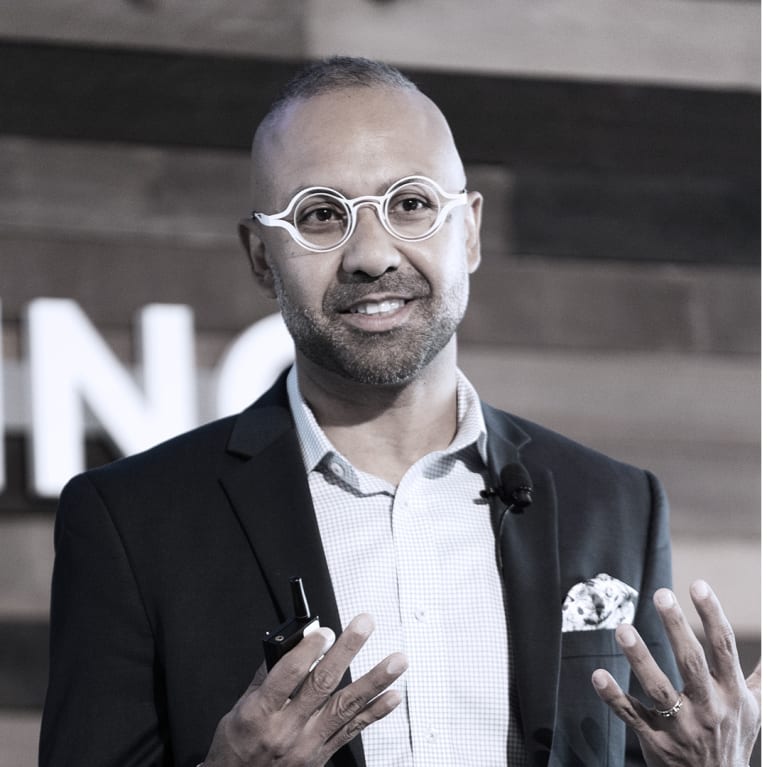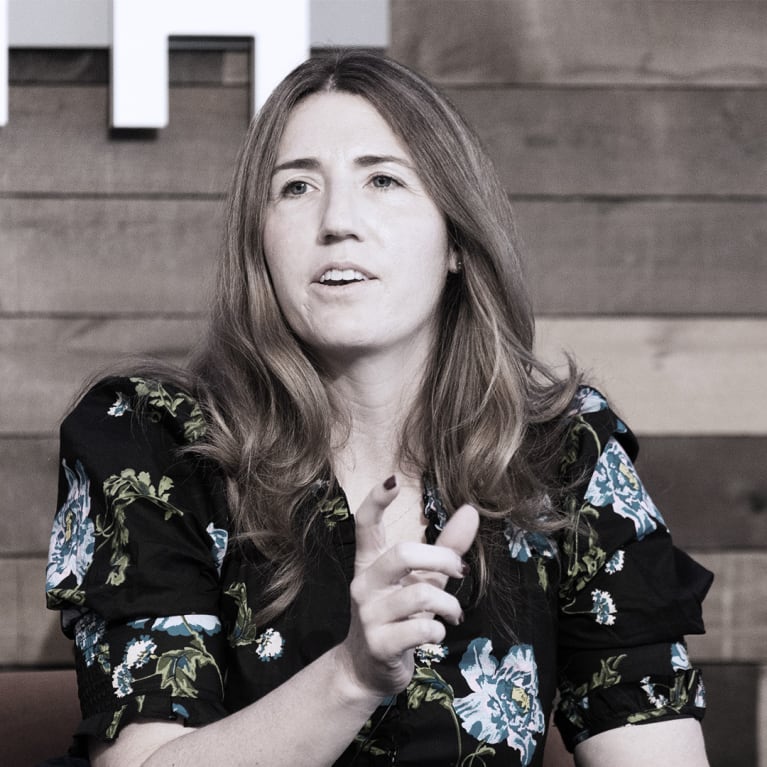Overheard at the 2022 Visionaries Summit
Eight great quotes from the SHRM Executive Network's annual gathering of HR and business leaders.

In October 2022, the SHRM Executive Network welcomed nearly 400 EN members, HR and business leaders to Chicago for the annual Visionaries Summit. Attendees heard powerful stories and discovered practical strategies for building healthier, more inclusive workplaces. Here are eight insightful quotes from the more than 40 presenters:
Replacing toughness with trust in leadership. "I'm grateful that we're normalizing being human again. For a long time, we celebrated toughness and grit as a leadership value and competency. We're getting back to a place where trust is the leadership competency that we should all be building and holding our executives to." – David Simmonds, senior vice president and global chief communications and sustainability officer, Great-West Lifeco and Canada Life
* * *
 Realizing DE&I doesn't matter without the B. "We've always anchored on diversity and inclusion. But it's belonging that's the most important. Diversity is a fact; it exists around us. Inclusion is an act, an act of including others. But it is belonging, the moment when every person feels included because of their uniqueness, not despite it, that matters the most." – Uzair Qadeer, chief people officer, Carbon Health
Realizing DE&I doesn't matter without the B. "We've always anchored on diversity and inclusion. But it's belonging that's the most important. Diversity is a fact; it exists around us. Inclusion is an act, an act of including others. But it is belonging, the moment when every person feels included because of their uniqueness, not despite it, that matters the most." – Uzair Qadeer, chief people officer, Carbon Health
* * *
Facing down the skills-gap crisis. "We have a crisis in American education right now that is going to have a big impact on corporate learning and development, because these folks are coming for jobs not skilled to the level that we need them to be skilled. … Our investors and customers are telling us that we have to start preparing the workforce for the future of jobs, for the jobs of the future." – Brandon Carson, vice president of enterprise leadership development, Walmart
* * *
Embracing the need for psychologically safe workplaces. "Our employees are very global about what sort of workplace experience they not only expect but are demanding. … It's important because if we don't create these workplaces where people feel psychologically safe, they will go somewhere else." – Marlo Gaal, chief talent officer and chief diversity officer, Ariel Investments
* * *
Creating a culture by design, not default. "Nowadays, people want to be in a place where they can express themselves. And every organization has a culture. Some have a culture by design, and some have a culture by default. … It's our job as CHROs to be sure that we design that supportive, inclusive culture." -- Kevin Silva, CHRO, Voya Financial
* * *
Overcoming stigma to solve hiring woes. "Stigma is the enemy. Stigma prevents companies from taking action. Stigma against unused or unleveraged pools of talent, such as veterans, military spouses, caregivers, people age 60 and older, workers with disabilities, individuals with mental illness or substance abuse disorders, individuals with criminal records …. Labels should be the beginning of conversations, not the end of conversations. … These untapped pools of talent present unique opportunities and value to organizations willing to make the effort to seek them out." – Glen Kreiner, management department chair, University of Utah
* * *
 Making connections in the virtual world. "When you're sitting in your room on screen, you lose so many of the things that make a workplace sticky and make it meaningful and make it so that switching costs of going to another company are actually really high at a human level. … People want an experience where they're connecting with their peers and colleagues and connecting with people outside the company." – Julia Stiglitz, CEO and co-founder, CoRise
Making connections in the virtual world. "When you're sitting in your room on screen, you lose so many of the things that make a workplace sticky and make it meaningful and make it so that switching costs of going to another company are actually really high at a human level. … People want an experience where they're connecting with their peers and colleagues and connecting with people outside the company." – Julia Stiglitz, CEO and co-founder, CoRise
* * *
Offering a "better deal" for returning to the office. "Unless you offer a better deal for employees to come back in (to the office) and do the work better than they did at home, they're not going to come in. And the other question is: 'How can we give them more control over their time?' Not control over their work, but control over their time when they return to the office. … What they're coming back for is belonging and connection." – Christina Banks, director of the Interdisciplinary Center for Healthy Workplaces, University of California, Berkeley
Was this resource helpful?



